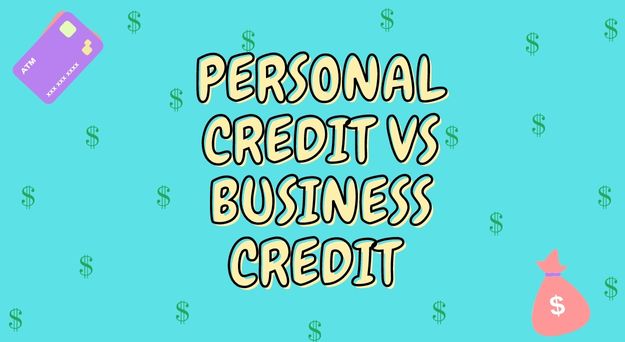In the world of finance, credit plays a pivotal role in facilitating economic activities. It empowers individuals and businesses to access capital and make purchases, enabling growth and financial stability. However, it’s important to recognize the distinction between personal credit and business credit. While they share some similarities, they also have significant differences that affect how they are established, used, and managed. In this blog post, we’ll delve into the dissimilarities between personal credit and business credit, helping you understand their unique characteristics.
- Definition and Purpose:
Personal Credit: Personal credit refers to an individual’s creditworthiness or their ability to borrow money based on their personal financial history and behavior. It revolves around personal loans, mortgages, credit cards, and other forms of consumer credit.
Business Credit: Business credit, on the other hand, relates to the creditworthiness of a business entity. It represents a company’s ability to borrow funds and fulfill financial obligations based on its operational history, financial statements, and payment behavior with vendors and creditors.
- Liability and Legal Separation:
Personal Credit: When you establish personal credit, you are personally liable for any debts or obligations you incur. Your personal assets, such as your house or car, can be at risk if you default on personal credit obligations. There is no legal separation between your personal and business finances.
Business Credit: Business credit establishes a legal separation between personal and business finances. If you run a business and obtain credit in the name of the business, your personal assets generally remain protected. The business assumes liability for its debts, providing a layer of separation and risk mitigation.
- Credit Reporting:
Personal Credit: Personal credit activity is primarily reported by credit bureaus, such as Equifax, Experian, and TransUnion. They gather data on your personal credit accounts, payment history, and public records, generating a personal credit score. This score helps lenders assess your creditworthiness.
Business Credit: Business credit reporting agencies, such as Dun & Bradstreet, Experian Business, and Equifax Small Business, focus on collecting data related to a business’s financial transactions, payment history, and legal filings. This information is used to generate a business credit score, which potential creditors and suppliers utilize to evaluate the creditworthiness of the business.
- Factors Affecting Creditworthiness:
Personal Credit: Personal creditworthiness is influenced by factors such as personal income, employment history, credit history, payment history, credit utilization ratio, and public records like bankruptcies or liens. Lenders assess these factors to determine the likelihood of you repaying your debts.
Business Credit: Business creditworthiness is determined by factors such as business history, payment history with suppliers and vendors, financial statements, cash flow, business size, industry, and legal filings. Lenders and suppliers evaluate these factors to gauge the business’s ability to meet its financial obligations.
- Access to Credit:
Personal Credit: Personal credit is typically easier to establish since it relies on an individual’s personal financial history. It is often used for personal purchases, such as homes, vehicles, and personal expenses. Personal credit limits and interest rates are generally lower than business credit.
Business Credit: Establishing business credit requires a separate legal entity, such as a corporation or LLC. Initially, business credit may be more challenging to establish since it relies on the business’s financial track record. Business credit is crucial for funding business operations, expanding, purchasing inventory, and other business-related expenses. Higher credit limits and interest rates may be available through business credit.
Understanding the differences between personal credit and business credit is essential for both individuals and business owners. While personal credit focuses on an individual’s financial history and liability, business credit assesses a company’s ability to fulfill financial obligations. By comprehending these distinctions, individuals can make informed decisions about their personal finances, while business owners can effectively manage their business’s financial health and access the necessary resources for growth and success.








Presented so well. Clarified many areas I had questions about. I can’t wait to get the ball rolling.
Feel free to reach out to us for further assistance!
Thank you and peace and blissings! ~